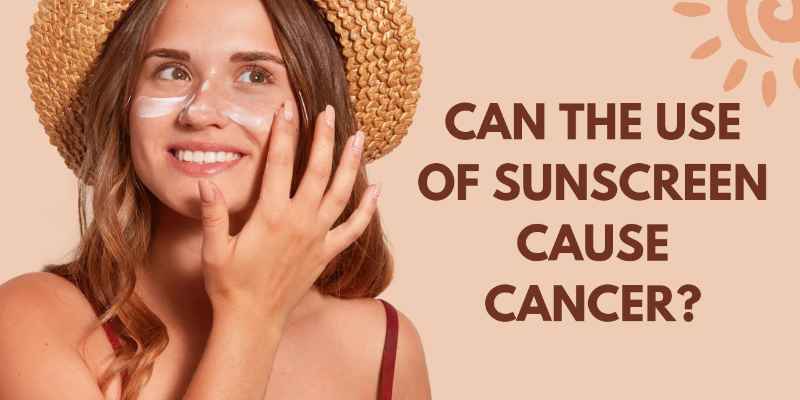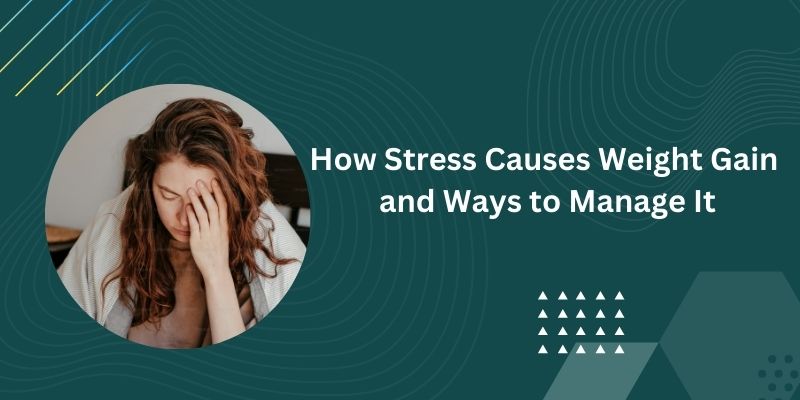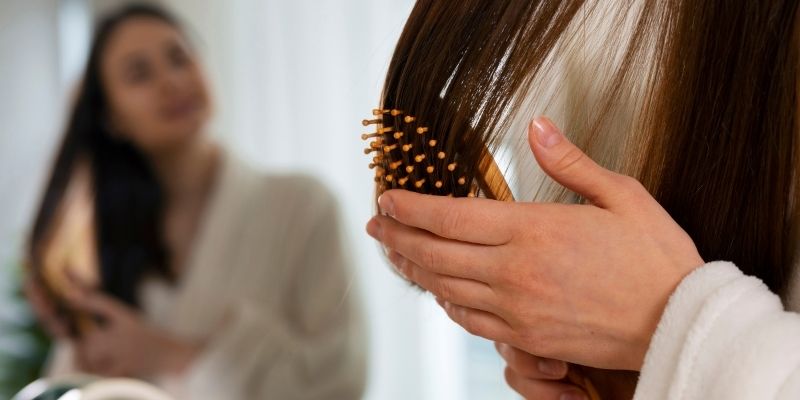Top 13 Nutrient-Rich Foods to Boost Hair Growth
Diet is crucial to healthy, lustrous hair. Shampoos and conditioners assist, but proper nutrition is vital. Strong, thick hair requires a balanced diet rich in hair-boosting nutrients to prevent hair thinning, loss, and dullness. This article will deliberate the necessity of a balanced diet for hair development, the consequences of nutritional deficiencies on hair health, and the top 13 nutrient-rich foods for hair growth. We'll also explore hair care, hydration, and lifestyle adjustments to stimulate hair growth. You'll learn how nutrition affects hair health and what foods to eat to attain your hair goals by the end.
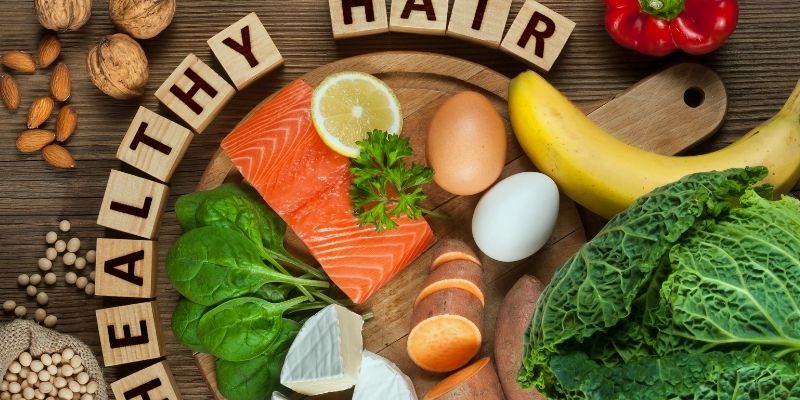
How can nutritional deficiency affect hair?
Nutritional deficits may significantly impact hair growth and health. Your hair needs vitamins, minerals, and vital fatty acids to grow and stay healthy. Lack of these nutrients may weaken, brittle, and break hair. Severe deficits may cause hair loss.
For instance, iron deficiency often thins hair, especially in women. Iron transports oxygen to hair follicles for development. Protein deficiency slows hair development and weakens strands, while biotin deficiency makes hair brittle. Since vitamin D helps produce new hair follicles, lacking it may cause hair loss. Over time, an omega-3 fatty acid imbalance may cause dry, flaking scalp and hair loss.
Watching your food and getting adequate nutrients for your hair is crucial. Addressing these inadequacies may promote healthy hair development and avoid nutrition-related hair disorders.
13 Best Hair Growth Foods
Many nutrient-rich meals promote hair development. These foods nourish your hair and keep it healthy, strong, and shining.
Salmon
Salmon is rich in hair-growth elements. Salmon, rich in omega-3s, protein, and vitamin D, supports hair follicles and scalp health. Omega-3 fatty acids minimise scalp irritation and increase circulation, supporting hair development. Vitamin D helps grow new hair follicles, while salmon protein strengthens hair. Eating salmon frequently helps thicken and strengthen hair.
Spinach
Iron, essential for hair development, is abundant in spinach. Consuming iron-rich foods like spinach helps prevent hair loss caused by iron deficiency. Spinach is rich in vitamins A and C, vital for hair development and scalp health. Vitamin A helps produce sebum, moisturising hair, while vitamin C strengthens hair by producing collagen.
Sweet Potatoes
Sweet potatoes contain beta-carotene, which the body turns into vitamin A. Vitamin A promotes sebum production, which keeps hair healthy and nourished. Beta-carotene, an antioxidant, may also improve hair health and minimise hair loss. Easily promote hair development by eating sweet potatoes.
Eggs
Eggs are rich in protein, which is needed for hair development. Consuming adequate protein stimulates hair follicles and growth since hair is mostly keratin. Biotin, a B vitamin that strengthens hair and prevents loss, is found in eggs. Biotin deficiency may cause brittle hair; eating eggs helps enhance texture and avoid damage.
Avocados
Avocados include monounsaturated fats, good for scalp health and hair development. Vitamin E and C, which promote hair health, are abundant in them. Vitamin E protects hair from free radical damage, while vitamin C boosts collagen synthesis, strengthening hair. Avocados also prevent hair loss by moisturising the scalp with beneficial lipids.
Seeds and nuts
Almonds, walnuts, and flaxseeds provide vital fatty acids, protein, zinc, and selenium, encouraging hair development. Walnuts contain omega-3 fatty acids that nourish the scalp and alleviate irritation, while zinc prevents hair loss. These nutrients boost keratin synthesis, which strengthens and prevents hair damage.
Berries
Strawberry, blueberry, and raspberry antioxidants, especially vitamin C, protect hair from oxidative stress and free radical damage. Collagen formation, which keeps hair strong, depends on vitamin C. Flavonoids in berries boost scalp blood flow and hair development.
Greek Yogurt
Greek yoghurt is high in protein, which helps hair grow. It includes vitamin B5 (pantothenic acid), which boosts scalp blood flow and hair development. Greek yoghurt also contains probiotics, which stimulate hair growth and general wellness. Regular Greek yoghurt consumption promotes thick, healthy hair.
Carrots
Beta-carotene, which the body converts into vitamin A, is abundant in carrots. Vitamin A stimulates sebum production to moisturise the scalp and develop hair. Carrots are rich in antioxidants that preserve hair follicles. You can keep your hair healthy and lustrous by eating carrots.
Oysters
One of the finest sources of zinc, which is needed for healthy hair, is oysters. Zinc regulates hormones and promotes cell growth, including hair follicles. Include zinc-rich foods like oysters to avoid hair loss from zinc deficiency. Protein and other nutrients in oysters help hair health.
Beans
Beans, including black beans, kidney beans, and chickpeas, are high in protein and iron. Protein strengthens hair strands, while iron promotes hair growth. Biotin in beans improves hair follicles and promotes hair growth. Consuming beans may boost hair development, minimise hair loss, and enhance hair health.
Lentils
Lentils also include protein, iron, and folate, which promote hair development. Cell division requires folate, which helps hair follicles develop. Lentils' iron content oxygenates hair follicles, stimulating hair growth. Regular lentil consumption helps prevent hair thinning and breaking.
Pumpkin Seeds
In pumpkin seeds, zinc, magnesium, and omega-3 fatty acids encourage hair development. Zinc helps hair follicles stay healthy and prevent hair loss, while magnesium improves scalp circulation and growth. Omega-3 fatty acids reduce scalp irritation and promote hair development. Pumpkin seeds contain antioxidants that protect hair from oxidative damage.
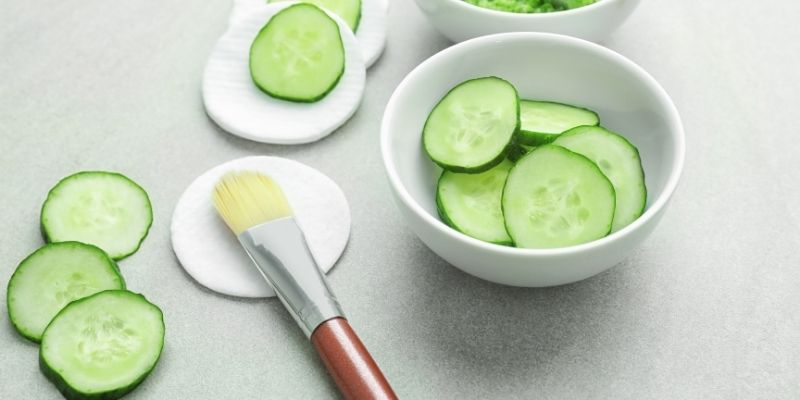
Other Ways to Help Hair Growth
Besides eating nutrient-rich meals, there are additional techniques to develop and maintain good hair:
- Good Hair Care: Avoid harsh washes and conditioners that strip hair of oils. Use a mild, sulfate-free shampoo and conditioner to keep hair healthy. Oiling the scalp with coconut or olive oil regularly may also nourish and develop hair.
- Hydration is essential for hair and general health. Hydrating your scalp promotes healthy hair development.
- Manage Stress: Chronic stress may cause hair loss. Relaxing with yoga, meditation, and deep breathing may boost hair growth.
- Exercise: Regular exercise promotes blood circulation, which delivers nutrients to hair follicles for sound development.
- Sleeping Enough: Sleep is vital to health. The body repairs and replaces hair-growth nutrients during sleep.
Conclusion
In conclusion, a balanced, nutrient-rich diet is vital for hair development and restoration. Salmon, spinach, eggs, and sweet potatoes are among the 13 nutrient-dense foods in this article that feed hair follicles, strengthen strands, and promote hair health. In addition to eating these nutrients, you should take care of your hair, keep hydrated, handle stress, and get enough sleep to promote hair development. A comprehensive strategy with proper diet and healthy living practices can help your hair grow intense, vivid, and gorgeous. Healthy hair comes from inside, so eat mindfully to get the gorgeous locks you've always wanted.



